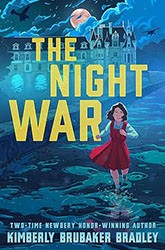Uprising by Jennifer A. Nielsen begins on September 1st, 1939, the day Germany invades twelve-year-old Lidia Durr’s home country, prompting a conflict that will end in millions of deaths. By the end of the book, Lidia is a young woman of sixteen and an active partisan against the Nazis. Based on true events, this middle-grade novel describes Lidia Durr Zakrzewski’s life and emotional development and the stark choices demanded of her community.
On the eve of war, Lidia is visiting her grandfather in the countryside and about to return to Warsaw. Her family life is far from ideal: while she has her father’s support, her mother seems unable to express love for her. Later, we find that Lidia is not Jewish, but she has Jewish friends and neighbors, including Doda, who was employed as a housekeeper in her home. When Doda and her aged mother ask for shelter from the Nazis, Lidia’s mother does not turn them away.
The pace of the narrative accelerates as extreme conditions demand difficult choices. Although the Nazis control and exploit non-Jewish Polish people, their hatred for Jews is different. When Lidia’s brother, Ryszard, expresses rage at the execution of Poles who resist the occupiers, Doda does not minimize these acts, but she contrasts them with eliminationist antisemitism: “They want you under their control. They want us to disappear.”
Nielsen also contrasts the Warsaw Ghetto Uprising — in which Jews courageously but ultimately fruitlessly tried to prevent the destruction of the ghetto — with the Polish underground’s rebellion against German rule in 1944. When one partisan defends these non-Jewish Poles for not having stood up for Jewish compatriots, he unthinkingly states that Jews are different. Lidia, accustomed to being marginalized as a woman in the movement, refuses to allow this excuse to go unchallenged, and frames the fighters’ obligation to help Jews as “for the gain of our souls.”
Lidia Durr was driven by conflict. Frustrated by the disparity between what was prudent and what was right, she transformed herself into a heroine.
Emily Schneider writes about literature, feminism, and culture for Tablet, The Forward, The Horn Book, and other publications, and writes about children’s books on her blog. She has a Ph.D. in Romance Languages and Literatures.





